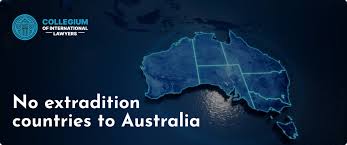
Examining Interpol’s Wanted List: A Comprehensive Overview
The Interpol wanted list overview www.deadlinenews.co.uk/2025/09/03/on-interpols-hook-high-profile-names-on-the-wanted-list/ serves as a critical tool in the international fight against crime, representing a collaborative effort among countries to locate and apprehend fugitives who are sought for serious offenses. The list includes a variety of individuals ranging from common criminals to high-profile fugitives, and understanding its complexities sheds light on the global justice system and the challenges it faces.
What is Interpol?
Interpol, short for the International Criminal Police Organization, is an intergovernmental organization that facilitates international police cooperation. Established in 1923, it has grown to encompass 195 member countries, making it one of the world’s largest international organizations. Interpol’s primary role is to assist member countries in combating transnational crime, including terrorism, human trafficking, drug trafficking, cybercrime, and corruption.
Understanding the Wanted List
At the heart of Interpol’s operations is its wanted list, which includes individuals who are sought for crimes that violate national or international laws. The list is divided into various notices, with the most well-known being the Red Notice, which serves as a request to law enforcement worldwide to locate and provisionally arrest a person pending extradition.
Types of Notices
Interpol issues several types of notices, each serving a specific purpose:
- Red Notice: Requests the arrest or location of a wanted person.
- Blue Notice: Collects additional information about a person’s identity or activities.
- Green Notice: Provides warnings and criminal intelligence about persons who have committed crimes.
- Yellow Notice: Helps locate missing persons, often minors, or to identify persons who are unable to identify themselves.
- Black Notice: Seeks information about unidentified bodies.
Notable Cases on the Wanted List
Over the years, the Interpol wanted list has featured numerous high-profile fugitives. Some cases stood out for their notoriety or the criminal activities involved:
1. Joaquín “El Chapo” Guzmán
The notorious Mexican drug lord, head of the Sinaloa Cartel, was one of the most wanted criminals in modern history. Extradited to the United States in 2017, Guzmán was sentenced to life in prison. His initial escape from a Mexican prison in 2015 highlighted the complexities of international crime and law enforcement.

2. Matteo Messina Denaro
Considered the most wanted Mafia boss in Italy, Matteo Messina Denaro was on Interpol’s wanted list for over 30 years. He was involved in various crimes, including murder and drug trafficking. His recent capture in January 2023 dramatically showcased the efficacy of international cooperation in policing.
3. Ayman al-Zawahiri
The former leader of al-Qaeda, Ayman al-Zawahiri, was placed on the wanted list following his involvement in the September 11 attacks in the United States. His role in terrorist operations made him a significant target for global law enforcement.
The Impact of Globalization on Crime
As globalization continues to connect the world’s economies and cultures, it also facilitates the spread of crime. Criminal organizations often operate across borders, making it essential for international cooperation. Interpol’s wanted list exemplifies this necessity, as law enforcement agencies share intelligence and resources to track and apprehend fugitives.
Challenges Faced by Interpol
Despite its efforts, Interpol faces several challenges in maintaining and updating the wanted list:
- Political Interference: Some nations may use the wanted list for political purposes, targeting dissidents or political rivals.
- Resource Limitations: Not all member countries have the same resources or infrastructure, leading to disparities in tracking wanted individuals.
- Technological Advancements: As crime evolves with technology, so too must the strategies and resources used by law enforcement.
The Role of Public Awareness
Public awareness and involvement can play a crucial role in the success of Interpol’s operations. Citizens are often the first line of defense in reporting suspicious activities. Additionally, various awareness campaigns aim to educate the public about the consequences of supporting or engaging with criminal organizations.
Conclusion
Interpol’s wanted list serves not only as a tool for capturing fugitives but also as a symbol of international cooperation in the face of crime. As the world continues to change, so must the approaches to law enforcement and the rules governing it. Understanding the intricacies of the wanted list allows for a deeper appreciation of the balance between justice, security, and human rights in a globalized world.